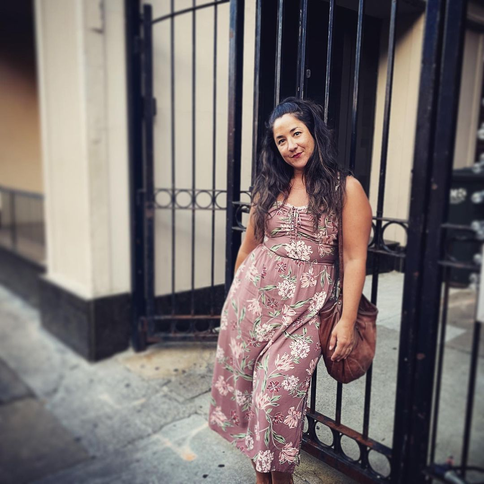
Valentina Valentini is an American freelance journalist and writer based in London. In addition to being a senior contributor at Shondaland, her bylines have also appeared in a slew of prestigious publications, including the Washington Post, Vanity Fair, Esquire UK, Variety, Harper’s Bazaar, Travel + Leisure, and many more. Like many freelance reporters, she covers a variety of beats, including entertainment stories, personal essays, travel and cultural pieces, as well as human interest angles.
Here, she spoke with Press Hook about her day-to-day routine and shared some insider tips on what makes a pitch catch her attention.
This interview has been lightly edited.
Tell us about your day-to-day routine.
Because I live in London, but work mainly with USA clients, I have the luxury of getting started a bit later. I'm up at 8 a.m. and can get in a bit of exercise or yoga, and then [am] at my desk by 10 a.m.
I end up working until about 7 p.m. on a good day, but sometimes I've worked until 11 p.m. If there's a celebrity in Los Angeles that I need to interview at 2 p.m. PST, well, then, I'm going to get that done. Once, I had to wake up at 2:45 a.m. to conduct a 15-minute interview at 3 a.m. That was not pretty!
My days can be pretty flexible, but I just need to meet deadlines because I don't have set office hours. I work about 50 hours per week, give or take.
How many stories do you work on in a month? How do you keep yourself organized?
The number of stories can also vary widely. If there are a bunch of TV or movie premieres in one month, then I'll be working across 15 to 20 stories. But I'd say, on average, I have about 5 to 10 stories running at any given time.
I am a super-organized person, so I love a spreadsheet! My fiancé is a whizz at them, and he's taught me so much! I have a ‘Master Pitch Board,’ which holds all of my pitches, rejections, commissions, works-in-progress, holds, killed stories, and published stories. I have columns for just about everything. I also have pivot tables that help me track my earnings and word counts, publication features, and so on. (To be honest, I've thought about marketing it and selling it for a small fee, it's that life-changing and simple to use.)
How do you find sources/products?
I don't do a lot of reported pieces, but when I do, I use my robust network of publicists to help me find someone. I've also used the University of Pennsylvania's media center contact before. The guy there is fantastic and has many weird and wonderful sources on tap!
What stands out to you in a pitch from a publicist? The good? The bad?
When someone sends me something that I categorically never have and never would write about—watch batteries, designer tea kettles, business mergers, to name just a few that I've gotten—it just baffles me. I'm easily found online: my website, google, LinkedIn, socials. It's pretty clear I don't write about those things. But when a publicist sends me a short and sweet note that has the pertinent information upfront (who, what, when), then I'm all ears. Also—and this one is important—don't put something vague, like, "Interested?" or "I've got something you'd like..." or "Can I have a minute of your time?" It's just unhelpful and a waste of all our time. Be clear. Be kind. Be quick.
How do you come up with story ideas?
Having been in the entertainment and travel writing business for over 12 years (travel for about a third of that), I'm on hundreds of publicists' email lists. And with the personal relationships I've built with nearly all of them, they know they can come to me specifically when they think there's a fit for their client. However, it’s important to keep in mind that I'm up to date on all the film and TV scheduled releases, what's in production, and who is filming what, so I can find things I want to write about that way, and go directly to the publicists with my own ideas, too.
What's the hardest part of your job? What's the best part?
The hardest part is probably the same as the best part: flexibility. I've had to learn how to be less structured, less rigid, and more spontaneous with my time and my effort. Because I'm freelance, I can take off to Paris for a week if I want and work a few days while I'm there, or... not. But it also means that there isn't always that comfort of knowing exactly how much you'll make each month or how many stories you'll publish—or even where. I've learned to be totally okay with the ebb and flow of my work. And honestly... it took me about eight years to get to that point.
What advice would you give to a publicist to catch your attention?
I said it once, and I'll say it again: Be clear. Be kind. Be quick. Your subject line should be the Who, What, When — and not a million other pieces of information.








